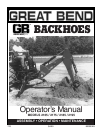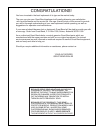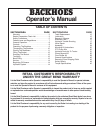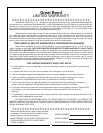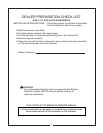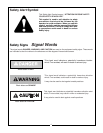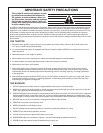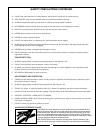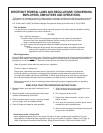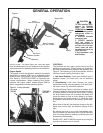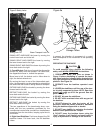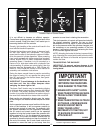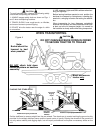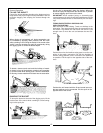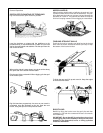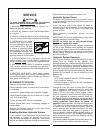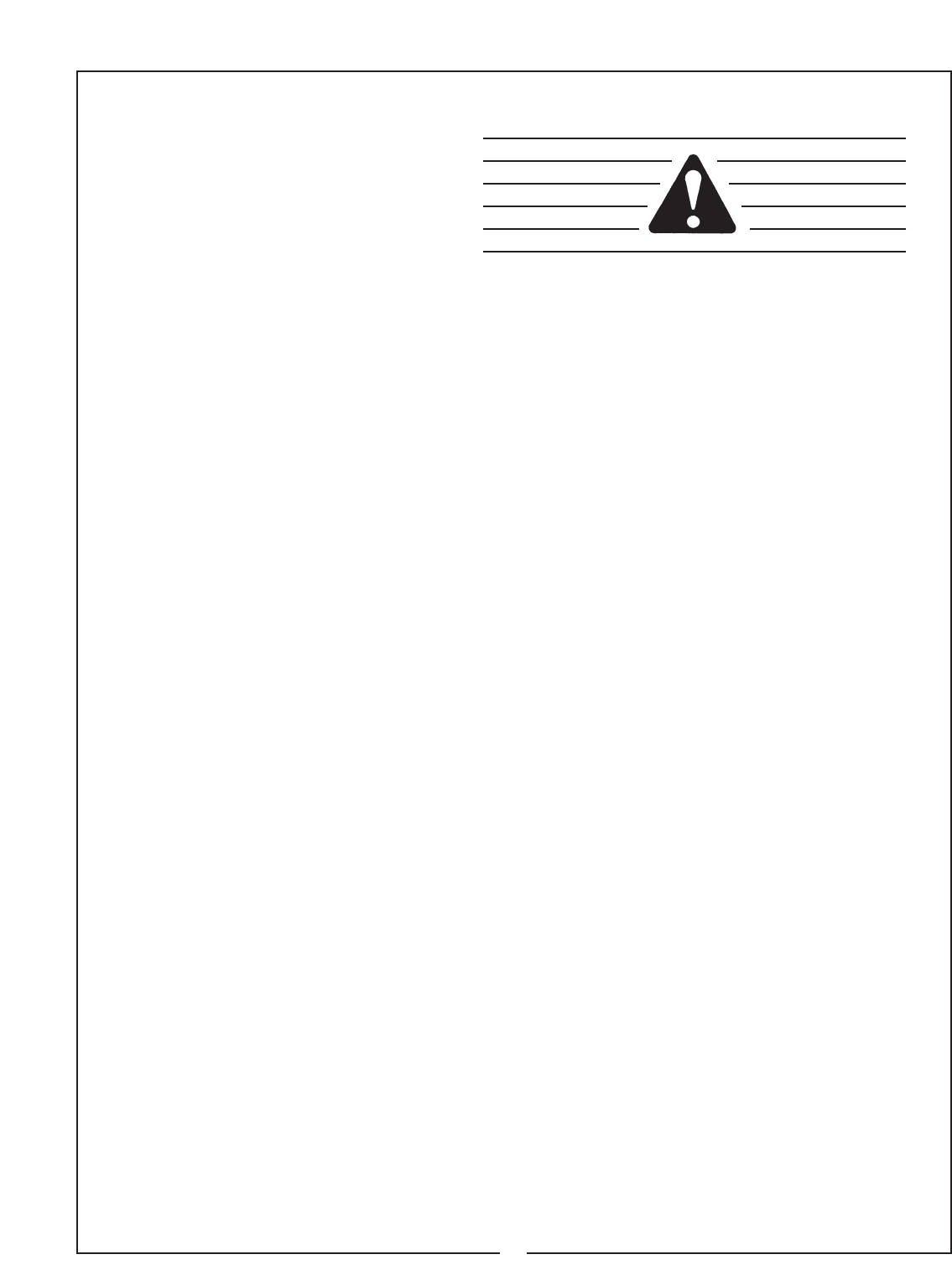
IMPORTANT SAFETY PRECAUTIONS
This symbol is used to call attention to safe-
ty precautions that should be followed by
the operator to avoid accidents. When you
see this symbol, carefully read the message
that follows and heed its advice. Failure to
comply with safety precautions could result
in serious bodily injury.
In addition to the design and configuration of equipment, hazard control and accident prevention are dependent upon the
awareness, concern, prudence and proper training of personnel in the operation, transport, maintenance and storage of
equipment. Lack of attention to safety can result in accident, personal injury, reduction of efficiency and worst of all—loss
of life. Watch for safety hazards and correct deficiencies promptly. Use the following safety precautions as a general
guide to safe operations when using this machine. Additional safety precautions are used throughout this manual for
specific operating and maintenance procedures. Read this manual and review the safety precautions often until you know
the limitations.
THE TRACTOR
1. Read the tractor operator’s manual to learn how to operate your tractor safely. Failure to do so could result in seri-
ous injury or death and equipment damage.
2. It is recommended that tractor be equipped with Rollover Protective System (ROPS) and a seat belt be used for all
loader operations.
3. Add wheel ballast or front weight for stability.
4. Move wheels to the tractor manufacturer’s widest recommended settings to increase stability.
5. For better stability, use tractor with wide front axle rather than tricycle front wheels.
6. Move and turn the tractor at low speeds.
7. Stop tractor engine, place transmission in park (or neutral), engage parking brake, lower loader arms to ground,
cycle all hydraulic controls to relieve pressure, allow machine moving parts to stop, remove ignition key to prevent
unauthorized person from starting engine before dismounting tractor or servicing, repairing, or making adjustments
to the equipment.
8. Wear personal protective equipment (PPE) such as, but not limited to, protection for eyes, ears, lungs, head, hands
and feet when operating, servicing, or repairing equipment. Avoid wearing loose clothing or jewelry that may catch
and entangle on equipment moving parts.
THE BACKHOE
1. DO NOT operate the backhoe unless it is rigidly attached to the tractor or skid steer loader.
2. KNOW your controls. Read this operator’s manual and the manual provided with your tractor. Learn how to stop the
tractor, the engine and the backhoe quickly in an emergency.
3. PROVIDE adequate front end weight to counter-balance the backhoe at all times. 20% of the total tractor, loader and
backhoe weight must be on the tractor front axle. If unsure of weight distribution, determine at a weight scale. Total
vehicle weight , including backhoe and counter weights, must not exceed the ROPS certificate for gross vehicle weight.
4. BE SURE the area is clear of overhead or underground utilities or other hazards.
5. POSITION a barricade around the work area.
6. KEEP all bystanders a safe distance away.
7. DO NOT attempt to enter operator’s platform of backhoe by using the stabilizers as a step.
8. OPERATE from the backhoe operator’s seat only.
9. ALLOW only one person to operate the backhoe at any time.
10. DISENGAGE safety locks as shown in Figures 1 & 3 before attempting to operate the backhoe.
11. NEVER dig with the backhoe unless the stabilizers are properly set.
5



